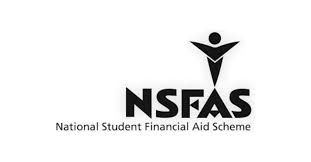Funding Eligible Without Admission (NSFAS) – A Detialed Guide
One of the most common questions asked by prospective students is whether they can apply for NSFAS funding without being admitted to a university or TVET college. This is a crucial question, especially if you’re still waiting for your acceptance letter, or if you’re unsure about the admission process. In this article, we will explain whether you can access NSFAS funding without admission, and what you need to know about applying for financial aid through NSFAS.
What is NSFAS?
The National Student Financial Aid Scheme (NSFAS) is a government initiative aimed at providing financial assistance to South African students who need support to further their studies at public universities or Technical and Vocational Education and Training (TVET) colleges. The funding covers tuition fees, accommodation, study materials, transport, and personal allowances for eligible students.
To apply for NSFAS, you need to meet certain eligibility criteria. The scheme is aimed at students from disadvantaged backgrounds, with a combined family income of R350,000 or less per year.
Can You Apply for NSFAS Funding Without Being Admitted?
The short answer is no—you cannot apply for NSFAS funding without being admitted to a public university or TVET college. Here’s why:
- NSFAS is Designed for Registered Students: NSFAS funding is intended for students who are registered at a recognized educational institution. The bursary is designed to cover costs like tuition, accommodation, study materials, and other related expenses for students who have already gained admission to a university or college.
- Proof of Admission Is Required: One of the key requirements for NSFAS is that you must provide proof of your admission (a confirmation letter or registration document) as part of the application process. NSFAS needs to know that you are enrolled in a legitimate, accredited institution, as the funding is tied to your academic registration.
- NSFAS Does Not Provide Pre-Admit Funding: Unlike other financial aid programs, NSFAS does not offer funding for prospective students who are not yet admitted. The scheme is structured around the financial needs of registered students, as the goal is to help those who have already secured their place at a higher education institution.
What to Do if You Haven’t Been Admitted Yet
If you haven’t yet been admitted to a university or TVET college, but you are looking to apply for NSFAS funding, here are some important steps to follow:
1. Apply for Admission to a University or TVET College
- Your first step is to apply for admission to a public university or TVET college. You can’t receive NSFAS funding until you have been accepted and registered.
- Each institution has its own application process, deadlines, and requirements, so it’s essential to check the specific university or TVET college website for information.
- Apply early to increase your chances of acceptance. Universities and colleges typically open their application portals in May-June for the following academic year, with deadlines around August-September.
2. Wait for Admission Confirmation
- Once you’ve applied to the institution of your choice, you will need to wait for the admission decision. Institutions generally inform students about their acceptance status from October onwards.
- After you receive your offer of admission, ensure you confirm your acceptance by registering at the institution.
- Only after you have officially registered as a student will you be eligible to apply for NSFAS funding.
3. Submit Your NSFAS Application
- After admission and registration, you can apply for NSFAS funding.
- NSFAS applications for 2026 typically open around September 2024. You can apply through the NSFAS website or MyNSFAS portal.
- During the application process, you will need to upload the following documents:
- Proof of registration or admission from your university or TVET college.
- Identity document or birth certificate.
- Proof of income (e.g., pay slips or tax documents from your parents/guardians).
- Banking details for disbursement of allowances.
- Proof of residence.
4. Check Your NSFAS Application Status
- Once you’ve submitted your NSFAS application, you can track the status through the MyNSFAS portal.
- Keep an eye on your email or SMS notifications for updates. If any additional documents are required, be sure to submit them promptly.
Key Considerations for NSFAS Applicants
Even though you cannot apply for NSFAS without being admitted, there are several important things to keep in mind when applying for NSFAS funding:
1. NSFAS Application Deadlines
- Be aware of NSFAS deadlines. The application period typically closes in November, so make sure you submit your application on time.
- You must have confirmation of admission from your institution to apply, and your NSFAS application can only be processed after you are registered.
2. NSFAS Criteria
- Ensure you meet the NSFAS eligibility criteria, including:
- South African citizenship.
- Financial need, with a household income of R350,000 or less per year.
- Admission to a public institution (university or TVET college).
3. Appeals and Rejection
- If your application is rejected or you don’t meet the criteria, you can appeal the decision, but you will need to provide additional documentation to support your case.
- If you’re rejected because you haven’t been admitted yet, simply wait until you are registered, and then apply again.
4. NSFAS Disbursements
- Once your application is successful and approved, NSFAS will disburse funds to the institution to cover your tuition fees.
- In some cases, allowances for accommodation, transport, food, and personal expenses are provided directly to the student’s bank account.
Alternative Funding Options if You’re Not Yet Admitted
If you’re still waiting for admission, and you’re looking for funding, here are some alternative options you could explore:
- University or College Financial Aid Office:
- Many universities offer their own financial aid or bursary programs for students in need, even before admission. Reach out to the financial aid office for information about institution-specific bursaries or scholarships.
- Private Bursaries and Scholarships:
- Look for private scholarships, bursaries, or funding programs that don’t require you to be admitted first. Many companies, organizations, and NGOs offer financial support to students based on merit or need.
- Student Loans:
- Consider applying for a student loan through a bank or financial institution if you’re unable to secure NSFAS funding. However, remember that loans must be repaid with interest.
- Fellowships and External Grants:
- Some international or local organizations offer fellowships or grants that do not require formal admission to a university or college. These may be worth exploring.
To summarize, NSFAS funding is only available for students who have been admitted and registered at a public institution in South Africa. If you haven’t been admitted yet, you will need to apply for admission to a university or TVET college first. Once you have received your offer of admission and registered as a student, you can apply for NSFAS funding.
For more information about NSFAS application processes or to start your NSFAS application, visit the official website: www.nsfas.org.za.
Good luck with your application, and remember to stay on top of deadlines and requirements!

